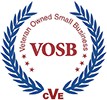
I chose to teach Entrepreneurship and Small Business Management at Aquinas College to a group of Millennials in the eight session quadmester format, because I saw success in business much like sailing or other team endeavors. Everything is different when viewed as a spectator vs. a player. Having worked in the corporate world, started my own business twice and advised and taught businesses and organizations how to communicate persuasively, grow their customer bases and ultimately their profits, I wanted to give this generation a better chance with insights that I had gained.
Like my students, who would choose to start a business, work in a family business or enter the corporate world, this article will provide you with an appreciation for Entrepreneurship and Small Business Management principles, processes and tools.
As with the winners of the America’s Cup, where their work was half conditioning and half practice as a finely-honed team, I structured the student experience likewise. I also chose a textbook that let them get into the same boat as an entrepreneur (Essentials of Entrepreneurship and Small Business Management, 8e. Norman M. Scarborough and Jeff Cornwall. Pearson Education, Inc. 2016), brought five entrepreneurs into class and created opportunities to meet and interview more. These are the salient points of my lectures, entrepreneurs’ observations, new research or students’ engagement or difficulties experienced in class.
Their outcome was to write and pitch a business plan for start-ups to investors as a team. Their learning objectives were to:
- Think more creatively,
- Recognize business opportunities and
- Develop the savvy to act on them.
I began each lesson with a thought provoking question about Entrepreneurship and Small Business Management. I hope that they help you, too.
Overcoming challenges to becoming an entrepreneur
Can I become an entrepreneur? The first step in examining any profession or career choice is to wipe away the stereotypes and myths to uncover its essence. America thrives on entrepreneurship, its cultural diversity and importance to our economy. Entrepreneurs come from all walks of life, but share many similar traits, which we will scrutinize in the upcoming articles.
To better understand the importance, trials and characteristics of entrepreneurs, watch ‘Call of the Entrepreneur’ by Father Robert Sirico of the Acton Institute.
Why ethics and social responsibility make for sound business
Can I do the right thing and will my employees? Leadership starts at the top with the founder of any organization. However, people are people. As an owner, you must understand why ethical lapses occur and how to establish high ethical standards. We’ll address more in our section on leadership.
According to research, 75% of consumers say social responsibility is important in their purchasing decisions and there is a positive correlation between ethical, socially responsible behavior and profitability.
The simplest way to show responsibility to your customers and other stakeholders is to know their names, anticipate their needs, talk about their families or interests and establish trust (integrity).
Forming an entrepreneurial mindset
Can I follow the creative process to provide value? Entrepreneurs connect their creative ideas with the purposeful action and structure of a business. We used these definitions and expounded on them later:
- Creativity – ability to develop new ideas and to discover new ways of looking at problems and opportunities; thinking new things.
- Innovation – ability to apply creative solutions to problems or opportunities to enhance or to enrich people’s lives; doing new things.
- Entrepreneurship – result of disciplined, systematic process of applying creativity and innovation to needs and opportunities in marketplace.
Creativity results in value that provides competitive advantage, which must be protected with patents, copyrights and non-disclosure agreements to sustain it.
In our class, we used cultural diversity to form teams to work on the business plan and presentation projects, and brainstorming techniques to establishing group norms to work together more effectively. My millennials chose communication, collaboration, accountability, attitude and knowledge as most important values for building and evaluating their teams.
In our next article, we’ll discuss developing your Feasibility Analysis, Business Model/Plan and Strategic Plan and insights from our guest entrepreneur.
If you are a startup, experiencing growth pains or need a business mentor – then Tempest can help to ensure that your objectives and procedures are clear, follow best practices and are assigned to the right individuals, as well as monitor and analyze performance. Should you need help improving the effectiveness of your business development efforts by getting customers and vendors involved in promoting how well your products or services meet their needs, contact us or find out how in our Marketing Planning and Marketing Communication Workshops.
